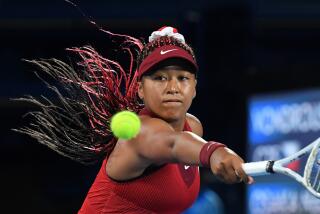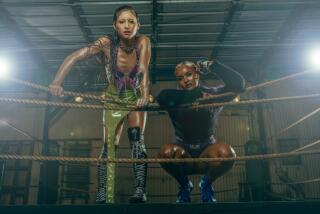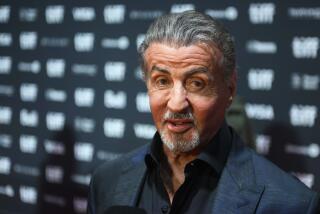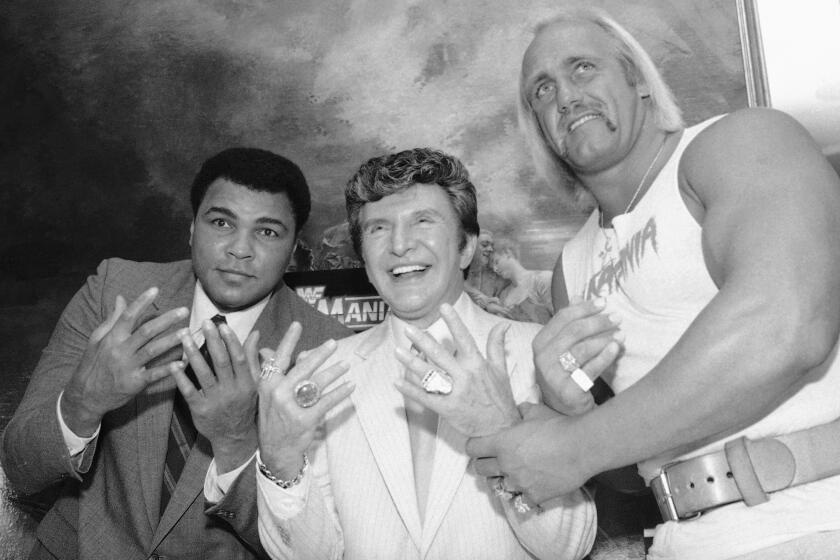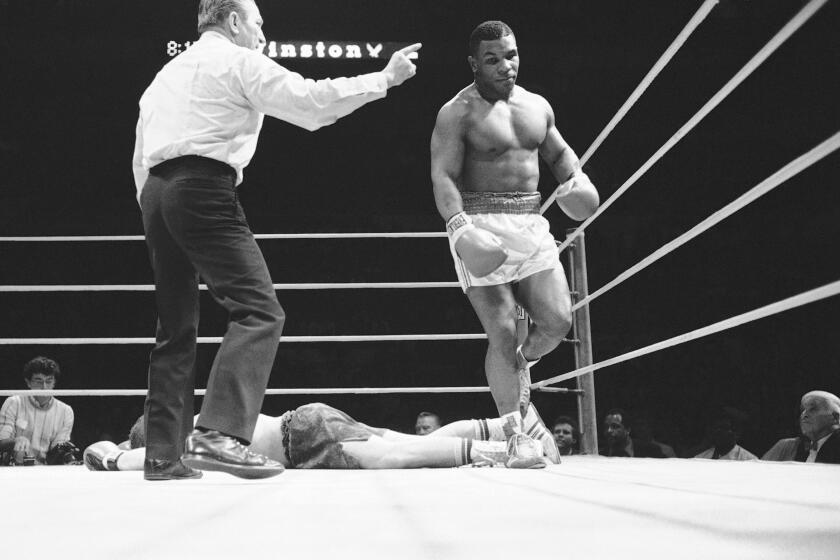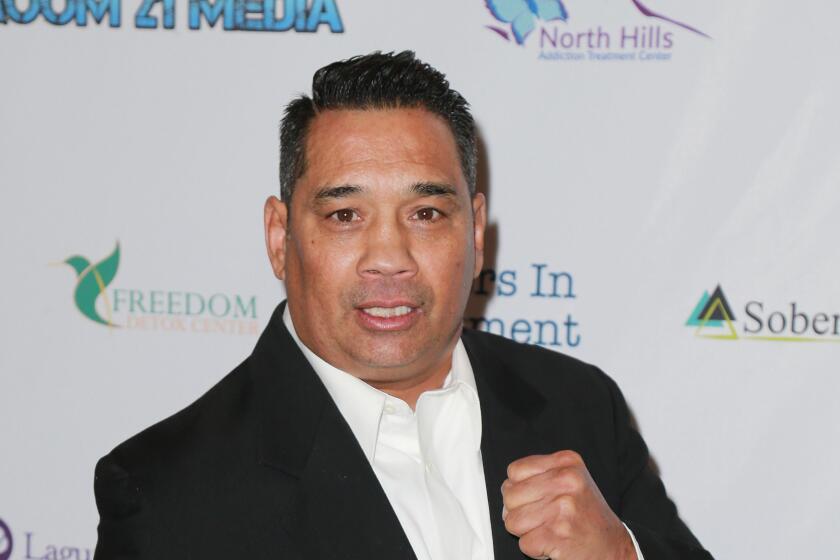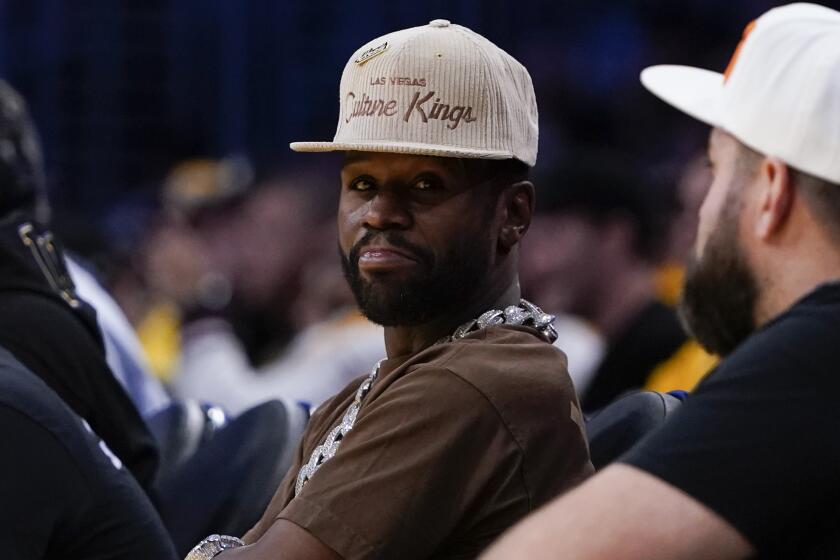Ronda Rousey opens up about UFC career and life after it
Ronda Rousey speaking to her Hollywood director and members of the public as the sun set on a perfect evening in Santa Monica became the ideal atmosphere for the UFC legend to reflect on her two knockout defeats more candidly than she ever has.
“One thing my mother never taught me was how to lose,” Rousey told Peter Berg, who directed her in the coming film ‘Mile 22.’ “She’d say, ‘I want you to never entertain it as a possibility. Let it suck. It deserves to suck.’”
Rousey, 31, retreated into deep seclusion following her November 2015 head-kick knockout loss to Holly Holm that ended her dominant reign as the UFC’s first female champion, and she remained there before and after current bantamweight champion Amanda Nunes knocked her out in the first round nearly 500 days ago.
“There’s a lot of stuff I wouldn’t have been able to get through, and my secret is right there,” Rousey said, motioning toward her husband, UFC heavyweight Travis Browne, inside Berg’s Wild Card West gym.
With that, tears came.
“I always wanted to be so tough. I found a way to make crying tough. My mom didn’t teach me how to deal with that stuff [losing] … [so] I did a whole lot of crying, isolating myself. He held me and let me cry, and it lasted two years. I couldn’t have done it alone.
“There’s a lot of things you have to remember. Every missed opportunity is a blessing in disguise. My nanny always said, ‘God always knows what he’s doing even if you don’t.’ I had to learn from experience and believe it’s still true. From the worst things, the best things have come as a result. Time is a great teacher. It’s that belief that time passes … even [bad] time, it passes. People need to learn not to be too rough on yourself, or get too down.”
It was a gripping confessional, one that the shielded Rousey hesitated to provide even an hour earlier, when her publicist told The Times not to ask her about “fighting” in an interview.
She had some compelling things to say about her life with Browne in a rustic Southern California enclave, and her new WWE career, which started with a well-received tag-team “victory” at “Wrestlemania” this month.
“I expected that I was being perceived as an outsider and rejected from the beginning,” Rousey said. “There is a certain way that people expect you to come up in the industry and I have had a very unorthodox path to where I am, and some people think of that as cutting in line.
“Unfortunately, I don’t have the miles on the body to go through the long and arduous path, I just hit the ground running, learning on a big stage instead of the … smaller shows.”
At home in Riverside County, Rousey called life with Browne “blissful.” They have goats and chickens on her property, cracking that her gardening is “doomsday prepping” and “sustainable living. I guess that makes [it] settling down … preparing for the apocalypse. I love that.”
She told Berg that “goats are the best doomsday animal you can have. You can milk a goat, eat a goat and they can keep you warm … I think it’s a good plan to have goats.
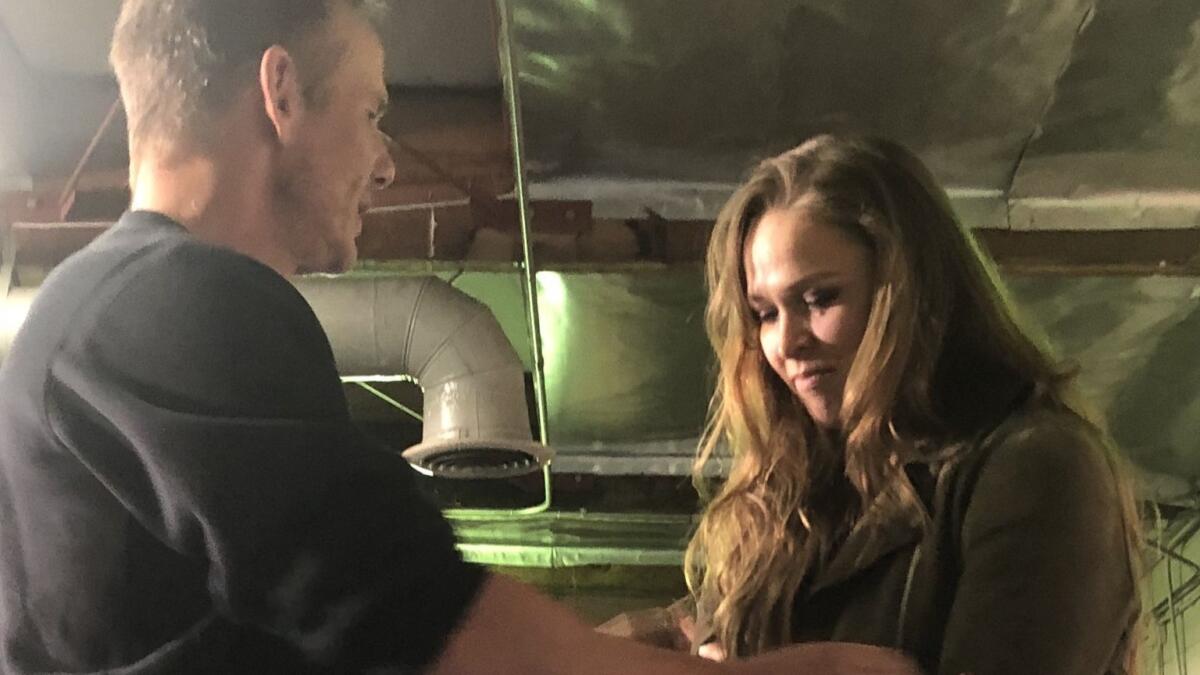
“I wouldn’t call myself domesticated, but … because I really care about the quality of my soil, I guess that makes me domesticated.”
She said her sporting greatness was rooted by the fact that “I can relate to every lesson I learned the hard way. Sport was not hard.”
She said her parents “expected me to be special, so I expected to be special. … I was just trying to create the job I wanted, and I wouldn’t have the audacity to do that if my mom didn’t tell me I could.”
She dominated the UFC earlier in her career by finishing all but one fight in the first round via the armbar she learned as a 2008 Olympic bronze medalist in judo.
But her fall from being the UFC’s top pay-per-view athlete was a crash, the harshness revealed in her talk with Berg, who also supervised “Friday Night Lights.”
“I’m looking at evolution … you’re a shining example of why we should keep evolving,” Berg suggested to Rousey.
“I’ve evolved a lot of different ways,” she answered. “Things don’t evolve if things are working out. Sharks have been around for a very long time … .”
Then Berg told the crowd of how Rousey praised a young boxer who dared to criticize Canelo Alvarez for being suspended last week for using a banned substance.
“We live in an age of trial by Twitter. What’s really gained by stating your opinion on anything? It whittles people down. It gets cut and pasted 10 times and it’s in headlines,” Rousey said.
“Why should I talk? I believe hearing me speak is a privilege and it’s a privilege that’s been abused, so why not revoke it from everyone? I don’t believe public criticism, beating you down, is the right thing to do.”
Twitter: @latimespugmire
More to Read
Get our high school sports newsletter
Prep Rally is devoted to the SoCal high school sports experience, bringing you scores, stories and a behind-the-scenes look at what makes prep sports so popular.
You may occasionally receive promotional content from the Los Angeles Times.
